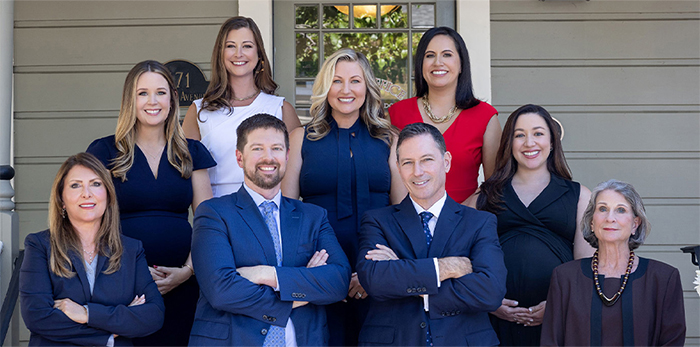About Property Division In Your California Divorce
When you get married, you merge nearly every aspect of your life with your spouse.
Married couples typically combine bank accounts, buy property together, establish retirement accounts and accumulate debt. And every asset acquired during marriage, other than by gift or inheritance, is presumptively community property belonging to each of you equally.
When you get divorced, you must divide that property, and any debt in a fair and balanced way. Aside from the determination of custody and support of any minor children, property division is often the most contentious aspect of a divorce and frequently the most complex.
Community Vs. Separate Property
After all disclosures have been completed, your property must be “characterized” as either community property or separate property.
California is a community property state. That means property acquired during the marriage is presumed to be community property unless it can be traced back as separate property or was acquired by gift or inheritance.
Generally, separate property remains separate, and community property is divided equally between the two parties. Property characterization is often extraordinarily complex and requires the attention of highly skilled attorneys and, in some cases, forensic financial experts capable of weighing in on proper characterization.
Division Of Community Property
After you have identified, characterized and valued all assets and liabilities, the community property must be divided.
Community property is generally divided equally in California. While that means 50-50, it does not mean that each person will get 50% of each specific asset. In large estates or estates with complex business interests, division of community property must be done thoughtfully to ensure the continued success of each asset for the benefit of both spouses. The attorneys at Doyle Quane rely on our in-house tax, estate planning, and business expertise to assist with the surgical division of high value assets.
The Importance Of Fiduciary Duties
In California, you have a each spouse has a “fiduciary duty” to your spousethe other. This is best understood as the relationship between two business partners and does not terminate until the final division of assets is completed. Family Code Section 721(b) instructs that these fiduciary duties require spouses to act in accordance with a duty of the highest good faith and fair dealing. That means that each spouse must make full disclosure of all material facts and information regarding the existence, characterization, and valuation of all assets, and must provide equal access to books and records pertaining to such assets. Failure to do so can result in substantial sanctions. Put simply, it is imperative that you and your spouse are each open and honest with your disclosures during your divorce proceedings.
The team at Doyle Quane is experienced in assisting you with these disclosures and ensuring your spouse is acting in accordance with their duties as well. Our family law forensic accounting team has Certified Public Accountants on staff ready to assist with the preparation of ongoing disclosures, which saves our clients the hassle of outsourcing such work to external parties.
Property Valuation
In order to divide property equally, you must value the property first. Equitable division of property requires an informed valuation of the property to be divided. It also requires an understanding of the relevant valuation time periods, taking into account, for example, any changes in value following the formal date of separation. Your family law attorney at Doyle Quane will help guide you through the property valuation process, again relying on our in-house expertise to simplify this process for you.
Our Experienced Team Is Ready To Assist
It is imperative that you work with an experienced family law attorney who can help you navigate the complex issues attendant to property division. Call 925-314-2320 or email us to request a consultation.


